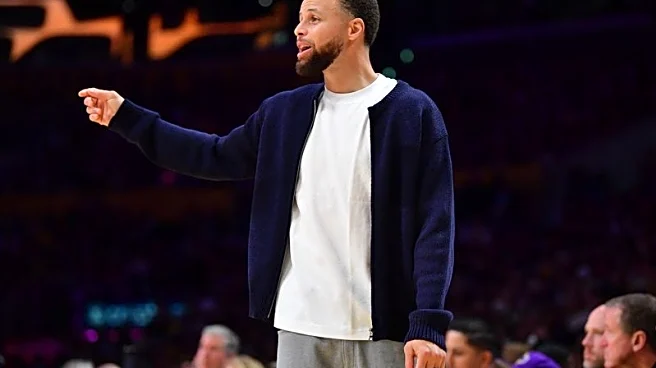What's Happening?
Behavioral scientist Jon Levy has released a new book titled 'Team Intelligence: How Brilliant Leaders Unlock Collective Genius,' which challenges conventional leadership wisdom. Levy argues that success
in leadership does not come from assembling the smartest individuals but from creating teams that work effectively together. He introduces the concept of 'team intelligence,' emphasizing the importance of trust, clear objectives, and leveraging unique skills within a team. Levy debunks myths about leadership, such as the need for aggressive alpha personalities, and provides practical advice for nurturing high-functioning teams.
Why It's Important?
Levy's insights are significant for business leaders and organizations seeking to enhance team performance and leadership effectiveness. By focusing on team dynamics rather than individual brilliance, companies can foster environments that encourage collaboration and innovation. This approach could lead to improved productivity and employee satisfaction, as teams become more cohesive and aligned with organizational goals. Levy's book offers a fresh perspective on leadership, potentially influencing how leaders are trained and how teams are structured in various industries.
What's Next?
As Levy's book gains traction, it may inspire leaders to reevaluate their team-building strategies and leadership styles. Organizations might adopt new practices that prioritize team intelligence, such as investing in team-building activities and communication training. There could be a shift towards more inclusive leadership models that recognize diverse skills and contributions. Additionally, educational institutions and leadership programs may incorporate Levy's concepts into their curricula, preparing future leaders to embrace collaborative and adaptive approaches.
Beyond the Headlines
Levy's emphasis on team intelligence highlights the evolving nature of leadership in the modern workplace. This shift reflects broader cultural changes towards valuing diversity and collaboration over individual achievement. It raises questions about traditional leadership paradigms and the role of empathy and emotional intelligence in effective leadership. Long-term, this could lead to more equitable and inclusive workplaces, where diverse perspectives are valued and harnessed for collective success.










